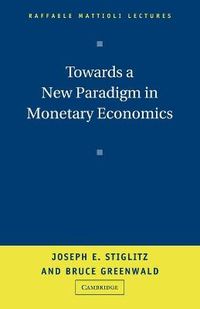
endast ny
Towards a New Paradigm in Monetary Economics
Towards a New Paradigm for Monetary Economics presents a pioneer treatment of critical topics in monetary economics. Unlike the prevailing monetary theory, this book focuses not on the role of money in facilitating transactions, but on the role of credit in facilitating economic activities more broadly. The ‘new paradigm’ emphasizes the demand and supply of loanable funds, which in turn requires the understanding of the imperfections of information and the role of banks. One enlightening view is that credit is quite different from other commodities in the sense that the former is based on information and default risk. The book consists of two parts. The first part develops a basic model of credit based on banks’ portfolio choices. The second part is dedicated to the policy implications, among which are the liberalization of financial markets, the East Asian Crisis, the 1991 US recession and the subsequent recovery.
Utgiven: 2003
ISBN: 9780521008051
Förlag: Cambridge University Press
Format: Häftad
Språk: Engelska
Sidor: 344 st
Towards a New Paradigm for Monetary Economics presents a pioneer treatment of critical topics in monetary economics. Unlike the prevailing monetary theory, this book focuses not on the role of money in facilitating transactions, but on the role of credit in facilitating economic activities more broadly. The ‘new paradigm’ emphasizes the demand and supply of loanable funds, which in turn requires the understanding of the imperfections of information and the role of banks. One enlightening view is that credit is quite different from other commodities in the sense that the former is based on information and default risk. The book consists of two parts. The first part develops a basic model of credit based on banks’ portfolio choices. The second part is dedicated to the policy implications, among which are the liberalization of financial markets, the East Asian Crisis, the 1991 US recession and the subsequent recovery.
Ny bok
496 kr522 kr
5% studentrabatt med Studentapan
Begagnad bok (0 st)
Varje vecka tillkommer tusentals nya säljare. Bevaka boken så får du meddelande när den finns tillgänglig igen.



